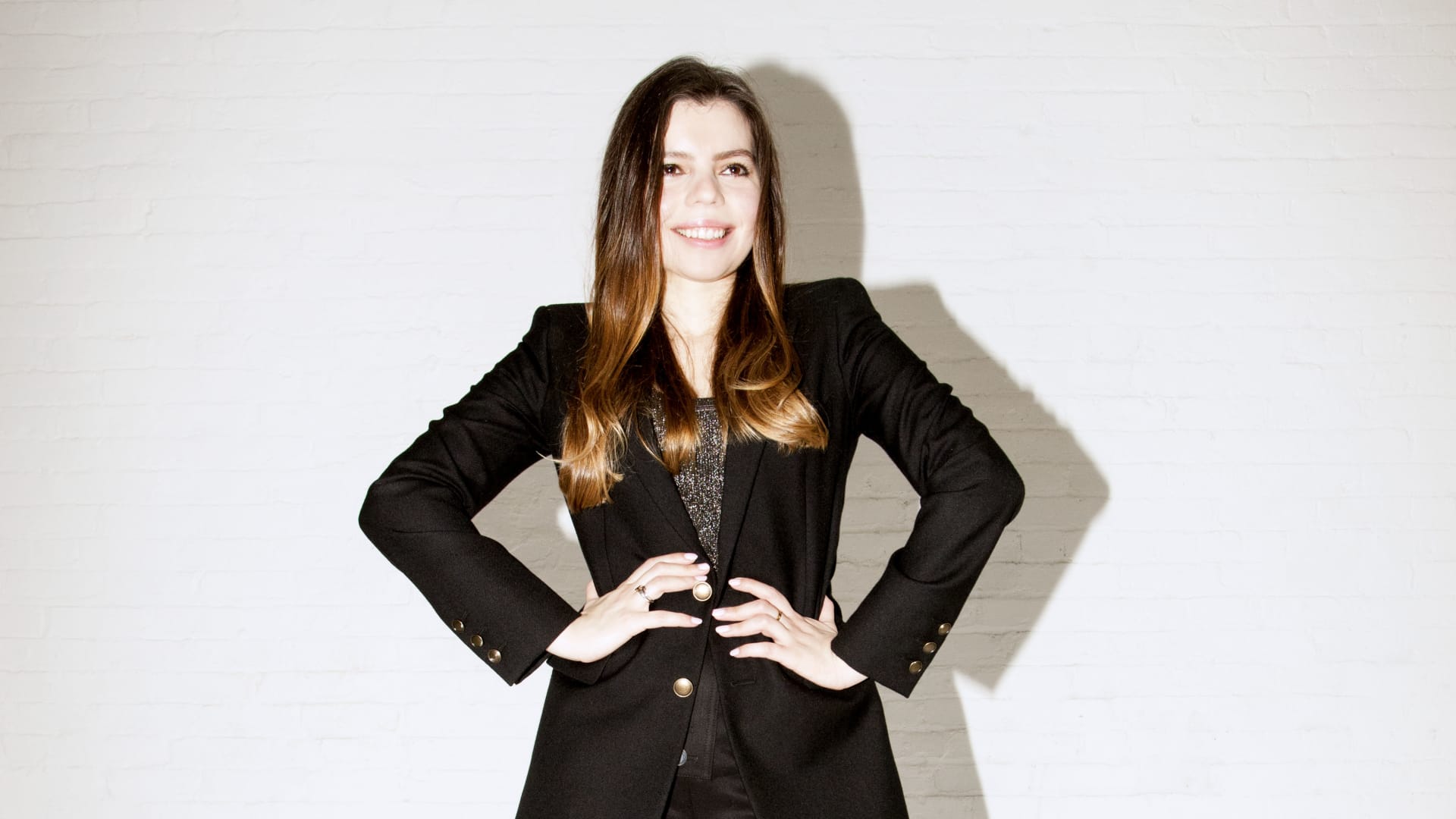
As the founder and CEO of The Newsette, Daniella Pierson knows what it takes to build a successful business from the ground up with zero connections and limited funding.
In 2015, as a sophomore at Boston University, she launched Newsette, a daily news newsletter for women, as a way to help figure out her own career path after college.
WATCH ANYTIME FOR FREE
Stream NBC10 Boston news for free, 24/7, wherever you are. |
"I had no idea what I wanted to be when I grew up or when I graduated," the 25-year-old tells CNBC Make It. "Everyone around me was doing internships or they were specifically looking at one role and I had no idea what that was going to be for me."
Though she was a huge fan of magazines, Pierson, who graduated with a degree in business, says she knew there was a slim chance of her landing an internship at any major publication because of her poor grades and lack of connections.
Get updates on what's happening in Boston to your inbox. Sign up for our News Headlines newsletter.
"I was like well if my GPA and references aren't going to get me to Conde Nast or Hearst then maybe if I start my own publication that will help me stand out," she says. "So, [Newsette] really started as a way for me to practice writing because I was a terrible writer."
After sending out her first newsletter in January 2015, the then 19-year-old says she realized that the thing that excited her the most was "bringing incredible women to my subscriber [list]" and "empowering and inspiring" them with content.
Now, more than six years later, Pierson has built Newsette into a newsletter that reaches more than 500,000 subscribers and that, as of the end of February, had raked in more than $6 million in revenue for 2021.

Growing the brand
Money Report
During Newsette's first three years of business, Pierson says her company consisted of three employees, "me, myself and I."
"I compare myself to the meme of the cat just like furiously typing on the computer because that was me at all times," she says.
In the beginning, Pierson grew her subscriber base by reaching out to friends and their networks because she had "zero money to do any sort of advertising or Facebook promotion."
"So, I would go into Facebook and I would find all of the people that I went to high school with who I hadn't talked to in years," she says. "I would then click on their profile and see all of their new friends from their new colleges and I would message all of the girls being like, 'Hey, I work for this really cool newsletter company. If you become an ambassador, you can put it on your resume.'"
As an ambassador, she says each woman acted as a recruiter for Newsette and was responsible for getting at least 10 people to subscribe to the newsletter.
"So that's really how I started getting my first, you know, couple of hundred and then a thousand subscribers," she says. "And then really from there, I just used word of mouth from the people that were subscribing."
In addition to curating aggregated content about business, beauty, fashion and the latest happenings around women's rights issues, Pierson says in Newsette's first year she also started to feature an exclusive interview with an inspiring woman in each newsletter.
"Every time I would get someone who had like 50,000 followers, I would be like, 'Okay, here are the assets and the language you can use to tell your followers to subscribe,'" she says.
Eventually, as the newsletter got more popular, Newsette gained access to interview women with larger social media followings who in turn shared information about Newsette with their networks. These women included people like Selena Gomez and Diane von Furstenberg. Von Furstenburg, who Pierson considers to be a mentor, partnered with the young entrepreneur on DVF's own weekly newsletter called "The Weekly Wrap," which launched in 2019.
Making a profit
As a college student with a limited budget, Pierson says she knew that starting a newsletter would be much cheaper than starting a clothing line or some other business. In her first year, she says the only money she spent was $30 to build out Newsette's website.
But, after her first year of building the newsletter's brand, Pierson says she realized that she needed more money to pay for necessary things like an email service provider and an illustrator to help with graphics. So she went to her parents, who are both entrepreneurs, to see if they could help her with start-up costs.
"Both of my parents come from poverty-level backgrounds and they both are self-made so they said, 'We're never going to just give you money for a business,'" Pierson explains. Instead, she says her parents loaned her $15,000 and had her sign a contract to ensure that she would pay them back in three years.
"I know that everyone wouldn't be able to get that kind of money from a parent," she says. "And I was really lucky that they, you know, had trust in me to pay that much money back when I was just 19 or 20."
Serving as Newsette's only employee for her first three years of business, Pierson says she was able to keep her overhead cost fairly low, which allowed her to pay her parents back well before her deadline.
After graduating from college in 2017, the recent graduate started to explore the idea of affiliate partnerships with various direct-to-consumer brands in order to make more money. "It's essentially when a brand comes and says, 'Okay, we're going to pay you if somebody buys one of our products with your link,'" she says, while adding that these partnerships helped her to build the audience data that was needed for future brand deals.
Initially, Pierson says these affiliate partnerships were with small brands and other startups. But, as the newsletter started to grow in popularity, opportunities came for her to do larger deals and partnerships with companies like Saks, Fidelity, Ulta Beauty, Bumble, LinkedIn and Twitter.
Last year, while many companies were forced to shrink due to the pandemic, Pierson says Newsette was fortunate enough to grow. In September alone, the company brought in more than $1 million in revenue, and as of the end of February 2021, Pierson says Newsette had made over $6 million for the year. Much of this money, she says, comes from advertisers and brand deals as Newsette has not taken any investments from venture capitalists.
"The only way that I would ever take on a partner for capital would be if I could still be 100% in charge and they would share my vision," she explains.
When looking at her company's growth, the 25-year-old credits her small team and lean business model for its success. Currently, the Newsette team consists of 10 employees; Pierson's first hire was an editorial assistant who joined three years ago to help with filtering and curating content.
While she has plans to expand her team to roughly 20 people by the end of this year, Pierson makes it clear that she has no plans of expanding her company's focus beyond a newsletter.
"I think the reason why we've been so successful is because we've had such a dead-set focus on growing our audience via email and having an intimate conversation with our readers," she says. "And I'm so glad that we focused so much on building that community and experience."
Check out: Use this calculator to see exactly how much your third coronavirus stimulus check could be worth
Don't miss: Women’s ambition plummeted during the coronavirus pandemic, as careers stalled and burnout spiked






